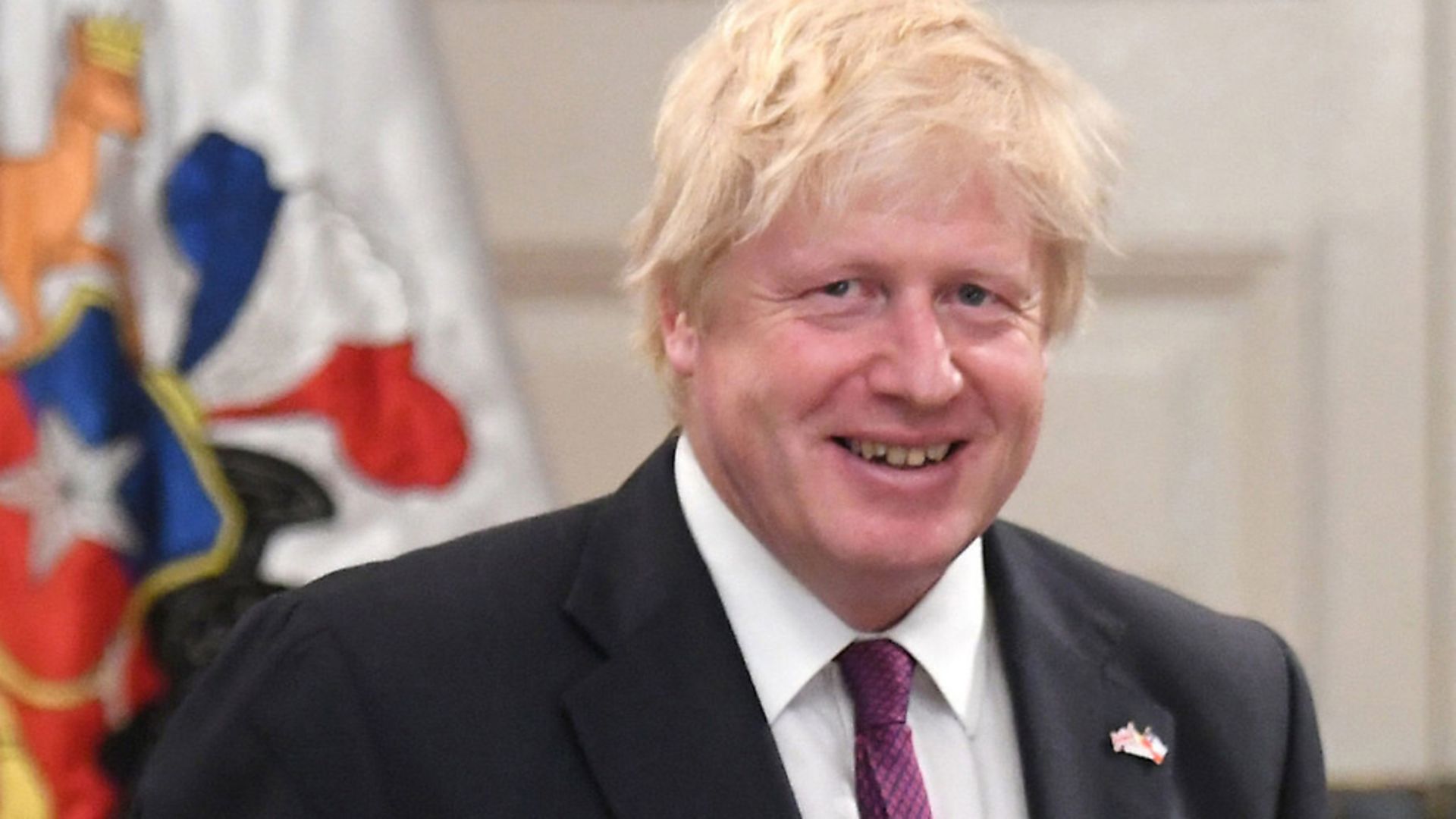
Boris Johnson is hellbent on being prime minister, argues ANDREW ADONIS, but his career has been built on cowardice.
For the biographer of Churchill to be the master of cowardice is a feat of hypocrisy unparalleled since the Emperor Nero refused the poison and lamented ‘what an artist is now about to perish’.
Junior ministers – the minnows – yes, they can resign over the principle of Heathrow expansion. But when it comes to the foreign secretary, who said he would lay down in front of the bulldozers if it happened, and who – as I know from my time as transport secretary – brought airports policy to a grinding halt while he played cheap politics as London mayor, well, a long-distance flight to avoid the key parliamentary vote turns out to be the only use of Heathrow.
The problem for Johnson is that his ministerial career is built on an original act of cowardice, from which he will never recover: the desertion of David Cameron over Europe in the 2016 referendum campaign.
Johnson has a problem with policy: he doesn’t care about anything intrinsically, even if it vitally affects the national wellbeing, beyond its impact on glorifying him personally.
He models himself on the roman emperors, who he studied with adoration in Latin, for who everything revolved around prestige and personal power. Policy is ‘bread and circuses’ – anything goes, provided it is big, bright and self-glorifying to the Leader of his People.
The 2012 Olympics were tailor-made for Emperor Johnson, and marked his imperial zenith because the country was with him in wanting the best global circus ever. He didn’t achieve much else as London mayor – beyond replacing one design of bus with another and introducing a bike hire scheme whose main appeal to him was that the bikes, like the buses, were named after him. There was also a cable car, the ‘Boris zipwire’.
However, one thing Johnson did repeatedly say while in City Hall: that he was the mayor of business and jobs. There was no ‘f**k business’ while his own job – sorry, toga – depended upon support from London’s business leaders. On the contrary, as mayor he pledged undying loyalty to the single market as vital to the City’s trade in international business and financial services.
Then, in the week after ceasing to be mayor in May 2016, he had to decide what to do on the EU referendum. As we now know, he wrote two articles of equal ‘conviction’ backing each side, so little did he care about the intrinsic issue. Imagine Churchill writing articles for and against an armistice in June 1940: ‘If the British empire should last a thousand years, men will look back and say, this treaty of peace and friendship with Germany, under their vigorous Teutonic leader of such vision for European unity, that was their finest hour.’
I met Johnson in that fateful week, to talk transport. We also discussed the referendum, and two things were clear. He basically knew that the right course was remain. But he chafed at playing second fiddle to the despised Cameron, and he yearned to be darling of the Tory grassroots. It was a calculation of self-advantage, pure and simple. He thought that leading the Leave campaign, which would lose, would force Cameron to give him a top job and position him as the inevitable, popular successor.
His decline and fall has flowed relentlessly from this act of cowardice. He hadn’t a clue – and still hasn’t – as to what actual policy should flow from a Leave vote. His own side – led by Gove – didn’t and don’t trust him. His ever more outrageous comments, and outrageous disloyalty, are an increasingly desperate, Nero-like quest to command attention and rally the Tory hordes.
This week I published my book Half In, Half Out: Prime Ministers on Europe Since Churchill. The brilliant chapter on Margaret Thatcher is written by Charles Powell, her foreign affairs supremo. What, I asked at the launch, would Thatcher have done in May’s shoes? I expected a homily on negotiating from strength. But no. ‘She would have sacked Boris immediately, for gross disloyalty and incompetence,’ was his response. The audience cheered.
Most pathetic of is Johnson’s declaration that he had to stay after the Heathrow vote – because Hillingdon council wanted him to do so. This then is the great speech: ‘We will fight them in the Hillingdon council chamber. We will fight them in Starbucks in Terminal 5. And if, in God’s good time, the bulldozers were to appear on the beaches, we will decamp to Caffe Nero, and order double-shot espressos.’
Forever Nero.









